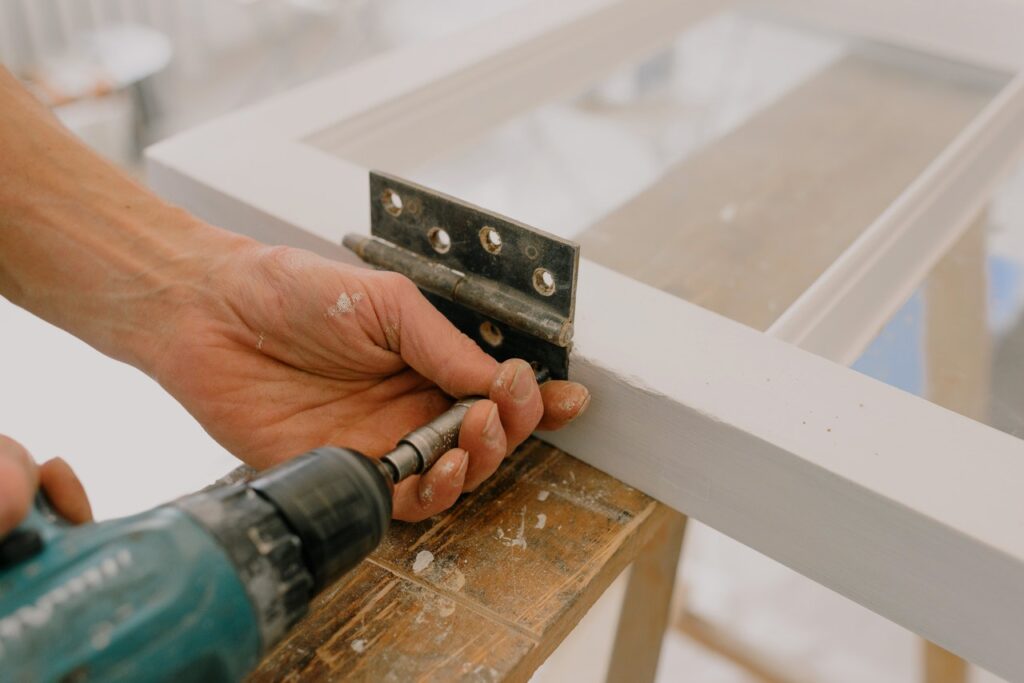If you’re new to buying and flipping homes, you probably realize that there’s a lot to learn. Unlike what you see on popular TV shows, flipping a house is challenging and not as straightforward as it appears.
But it is possible to successfully flip houses if you learn how to do it right. By following our tips, you can shorten your learning curve and help minimize your risks.
Related: The Best Time to Buy a House
How Flipping Houses Work

Flipping a house refers to someone buying a distressed property, fixing it up, and then reselling it for a profit. A common way to find these properties is through bank short sales, foreclosures, and property auctions.
To be successful, you need to spend your money wisely and know how to find and invest in undervalued homes. These are typically houses that require some work.
Next, you’ll have to invest in renovations to increase the home’s resale value and attract potential buyers. After completing the renovations, you have to list and market the home.
However, there is also a strategy called micro-flipping, in which you can buy and sell a home with little to no renovations. It’s an excellent option to get faster sales if you aren’t experienced in renovations. Micro-flipping works by searching for properties below the market value and quickly reselling them to another buyer; these homes typically don’t need major repairs.
The most important part of micro flipping is that it happens very quickly. Most successful micro flippers make their profits through a high volume of property transactions.
How to Start Your First House Flip
Now, let’s talk about seven essential steps to help reduce your financial risk, increase your odds of success, and get you ready to flip your first house.
Know the Area
Before you get started, you’ll want to spend plenty of time researching your real estate market and deciding which locations are best to invest. Working with a real estate agent throughout this process can make things a lot easier.
After finding a home you’re interested in buying to flip, you’ll want to bring in a contractor to look at the property. They can help you figure out what work will need to be done, how much it will cost, and whether or not the property fits within your budget after the renovations.
Use the 70% Rule
Real estate investors love the 70% rule for a good reason. This rule states that, as an investor, you should only pay 70% of a property less than necessary repairs.
Sound confusing? It’s really not. Let’s look at an example? If the home is worth $200,000 after renovations, and repairs will cost you $25,000, you don’t want to pay more than $115,000 for the property. 70% of the home’s after-repair value is $140,000. Once you subtract the repairs from that value, you get the $115,000, which should be the maximum that you pay for the house.
Related: How to Save for a House
Understand the Skills You Need
Having certain skills can help make you successful in flipping homes. For example, knowing at least basic levels of real estate, construction, and design are great skills to have. If you don’t have these skills, you’ll need to work with a professional who does.
Before you start flipping houses, it’s good to have a team of experts behind you to help. This team can include people like lenders, contractors, insurance agents, and real estate agents to help you find, fix, and, ultimately, sell the property.
Looking for the right lender to add to your team? Learn how we can help.
Financing Your House Flip

Your next step is figuring out how you’ll finance the home. If you don’t have the cash to buy the property outright, you’ll need to get pre-approved for a loan. Pre-approval will require you to have a good credit score and either a down payment or collateral.
Buying the Property
Finding the right house to flip is one of the most challenging parts of this investment. You can’t just think about the house’s current value; you need to consider its potential resale value.
Distressed, foreclosed, and fixer-upper houses are great options to consider. However, you’ll want to work with a contractor and real estate agent to gain a thorough understanding of what and how much work needs to be done on the home.
Then, when you find the right property, you’ll have to make an offer and close on the home. If you get a really great deal, there’s a high chance that you’ll be in competition with other buyers. Ensure that you know how much you can pay for the home and still make a decent profit. For example, you can use the 70% rule we described above.
Build Sweat Equity
Building sweat equity is how new house flippers with lower budgets can save some money. Sweat equity refers to the amount of unpaid labor that you put into the project.
Many new house flippers find that sweat equity is a necessity in building a successful house flipping business. It’s how they get the resources required to keep their momentum going.
It’s Time to Flip!
After you’ve made the repairs, either through sweat equity or a contractor, you’ll have to resell the house. Time is now of the essence; the longer it sits on the market, the less profit you make. Now, your goal should be to make improvements quickly and sell the house as quickly as possible.
Working with a real estate agent is crucial. They can list the home on the MLS database and also have a thorough understanding of market fluctuations to help you determine the perfect resale price.
House Flipping Starts With the Right Lender

If you get into house flipping with the right plan, it can be a great business option.
Working with the right team of experts to make the process much easier. In addition, getting the right financing can make it much easier to buy, renovate, and sell the house.
If you’re interested in flipping houses and learning what kind of loan you can qualify for, get in touch with our team at Mares Mortgage and see if you pre-qualified today.

